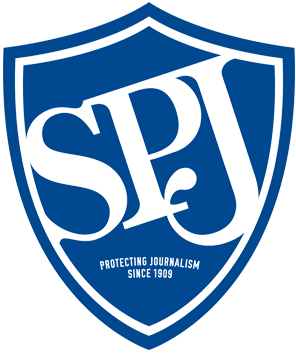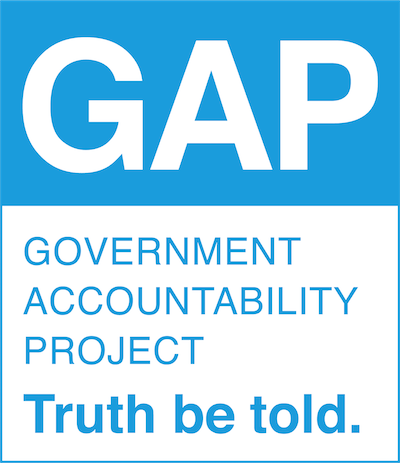The Whistleblower Project


– Introduction
– A Call to Action: Whistleblower Protection Legislation
If passed, these laws would help improve protection for whistleblowers.
Whistleblower Basics
– The Law and Whistleblowing
Deciphering the laws dealing with whistleblowing is complicated, but we hope this will help.
– Whistleblowers and Retaliation
Those who expose wrongdoing can face job loss, lawsuits or even prison.
– Leaking vs. Whistleblowing
Can you spot the difference between a leaker and a whistleblower? It may be trickier than you think.
– Nine Organizations That Work With and Help Whistleblowers
Best Practices for Journalists
– Source Protection and Anonymity for Whistleblowers
In political journalism, there’s a debate over allowing sources to talk to you off the record, in order to keep the access pipeline flowing. Anonymity and the ethics of it can also be complicated in situations beyond scoring political points.
– Whistleblowers and Reporters: Trust
Here are some best practices to follow when working with a whistleblower on a story.
– Technology Can Help Whistleblowers Communicate Anonymously
The ways that reporters and whistleblowers communicate is evolving. The introduction of secure communications has become necessary as journalists try to protect their sources, all the while trying to guarantee the information is secure.
– Anonymity: Not Always the Possible, Nor Always the Best, Strategy
Many whistleblowers want to disclose information about trouble in their workplaces while maintaining their anonymity. However, the vast majority of whistleblowers — more than 95 percent — try to solve their problems internally first.
– When Working with Whistleblowers, Same Ethical Journalism Principles Apply
Government Accountability Project’s “Working with Whistleblowers: A Guide for Journalists” details best practices for working with whistleblowers.
Voices
– Kathryn Foxhall: Good whistleblowing simply needs free speech
During the last 25 years it’s become an accepted norm for government, business, nonprofits and other organizations to prohibit employees to ever communicate with journalists without notifying and being overseen by the authorities, often public information officers. The restrictions are intense, highly effective censorship. The Society of Professional Journalists has made opposing them a priority.
– Jesselyn Radack: Challenges in Defending National Security Whistleblowers
War crimes, mass surveillance, torture: some of the biggest stories in modern history relied on whistleblowers in national security and intelligence agencies. They came forward at great risk to expose the truth.
– Nick Schwellenbach: The Modern Politics of American Whistleblowing
Insiders Valued More Highly in U.S. Society, But Still Face Perils.
 Food and Drug Administration safety researcher Dr. David Graham’s research showed that the painkiller Vioxx had caused 88,000 to 139,000 heart attacks, with a 30-40 percent fatality rate. Graham went to Congress after the FDA attempted to suppress his findings. His disclosures not only resulted in Merck pulling Vioxx off the shelves, they also exposed FDA bias in favor of pharmaceutical industry interests over health science.
Get the full details of David's story, along with 24 other times whistleblowers changed history.
Food and Drug Administration safety researcher Dr. David Graham’s research showed that the painkiller Vioxx had caused 88,000 to 139,000 heart attacks, with a 30-40 percent fatality rate. Graham went to Congress after the FDA attempted to suppress his findings. His disclosures not only resulted in Merck pulling Vioxx off the shelves, they also exposed FDA bias in favor of pharmaceutical industry interests over health science.
Get the full details of David's story, along with 24 other times whistleblowers changed history.
Features
– Mary Willingham: An Attempt To Make The College Athletic System Better For Athletes
Mary Willingham talks about why she spoke out about the treatment of college athletes at North Carolina and why — despite death threats from college sports enthusiasts — she would do it again.
– Megan Wood: Reporting with Purpose
Megan Wood talks about why she looked into San Diego Christian College’s missing $20 million in expenses and how whistleblowers make a difference in their communities.
– Richard Bowen: Blowing the Whistle on Defective Mortgages
While evaluating $90 billion of mortgages Citigroup was buying from Countrywide and other lenders, former Citigroup vice president Richard Bowen tried to warn company leaders and board members about the rise in defective mortgages. In 2010 he testified before the Financial Crisis Inquiry Commission. Here, in Bowen’s words, is what happened next.
– Craig Watts: Typical American Farmer Risks Career to Reveal Inhumane Conditions at Chicken Farms
Craig Watts was a typical American farmer with three kids, two dogs, and a barn full of chickens. That all changed though when he decided to show the public the conditions chickens, sold by Perdue farms, were being raised in.
Credits
Meet the Project Team
That’s the kind of deep knowledge that today’s extreme controls on reporters make almost impossible.
During the last 25 years it’s become an accepted norm for government, business, nonprofits and other organizations to prohibit employees to ever communicate with journalists without notifying and being overseen by the authorities, often public information officers. The restrictions are intense, highly effective censorship. The Society of Professional Journalists has made opposing them a priority.
Under the restrictions, employees are intimidated from saying anything that would even put a different perspective on the official story. But it goes further than that.
The process of getting permission to speak blocks most communication because it’s so cumbersome; the agencies ignore or deny requests for contacts they don’t want; and in the permitted, staged interviews it’s very difficult to chat or get to know anyone. (Walking the halls of the agency, of course, was prohibited years ago).
There is nothing wrong, for example, with two FDA attorneys remaining friends after one has left for the private sector. However, the human-level conversations that allow reporters to understand the character of an organization are invaluable for all kinds of reporting, including digging out malfeasance and getting people to become whistleblowers.
The Government Accountability Project states, “In common terms, whistleblowers are individuals, typically employees, who use free speech rights to expose abuses of power that betray the public trust.”
When they are speaking as private citizens rather than agency representatives, most federal employees have free speech rights that lawfully cannot be canceled through prior restraint. Rights under the Whistleblower Protection Act include reporting serious problems not only to internal sources, such as supervisors or agency Inspectors General, but also to external sources such as Congress, journalists or watchdog groups. Further, the Whistleblower Protection Enhancement Act (WPEA) explicitly prohibits agencies from imposing nondisclosure agreements and policies that fail to include required language that informs employees that their statutory right to blow the whistle supersedes the terms and conditions of the non-disclosure policy.
The WPEA, in theory, renders gag policies that mandate screening communication through a PIO illegal if the policy fails to explicitly acknowledge the primacy of an employee’s whistleblower rights.
These rights are reinforced by the Constitution. A first principle of the First Amendment is prior restraint, the requirement for a citizen to get prior permission to speak, is unconstitutional.
However, in practice, such rights and policies — even if they contain the mandated language — create the intended chilling effect on employee speech.
In an amazingly authoritarian mindset, people in government actually use the existence of laws to protect whistleblowers as a justification for prohibiting staff from speaking to reporters without notifying to the PIOs/censors. (See FDA response to petition.) If anything is wrong inside, staff members can legally become whistleblowers.
So, with official statements and whistleblower protections, the public has all it needs to know, right?
Wrong. There are so many problems with that, it amounts to smirking in the public’s face.
Most employees don’t openly blow the whistle because it is a huge risk to being comfortable on the job and even continuing their career. The PIO’s rules often block reporters and sources from communicating regularly — something that builds trust — which can prevent many insights.
The prohibitions stop insiders from explaining internal policy disagreements. Budget information is a prime example. A political administration’s funding or defunding of particular programs is something that happens routinely. However, government scientists or other staff can’t talk about facts that would support a different decision because of the PIO oversight — which is political oversight — and whistleblower protection is unlikely to apply to that situation.
The rules also hinder the best dynamics of free speech. A reporter speaking to 10 to 30 people can often bring together a story that no one understood previously. However, the mandated oversight process is so slow and awkward it limits the number of people a reporter can talk to.
Unrestricted reporting supports whistleblowing because journalists know how to find people who may talk, and those insiders are more likely to talk to them in confidence.
At this point, it’s critical that we protect and build on what we have with whistleblowing protection and push to regain the right for unrestrained newsgathering.
Whistleblowing laws support newsgathering because employees have a modicum of reassurance they will be protected. Both are vital to democracy.
Next: Jesselyn Radack: Challenges in Defending National Security Whistleblowers